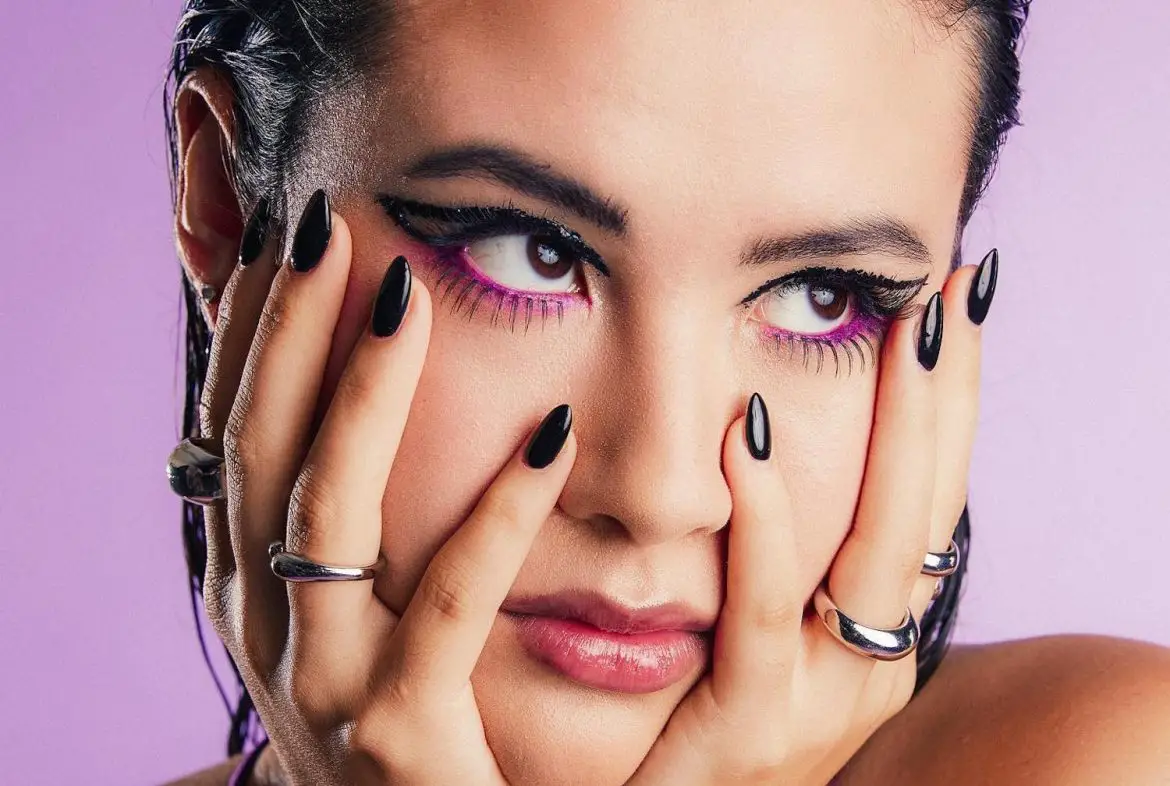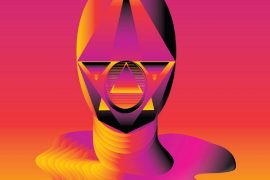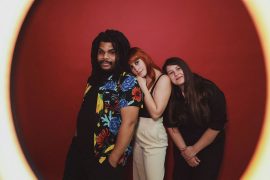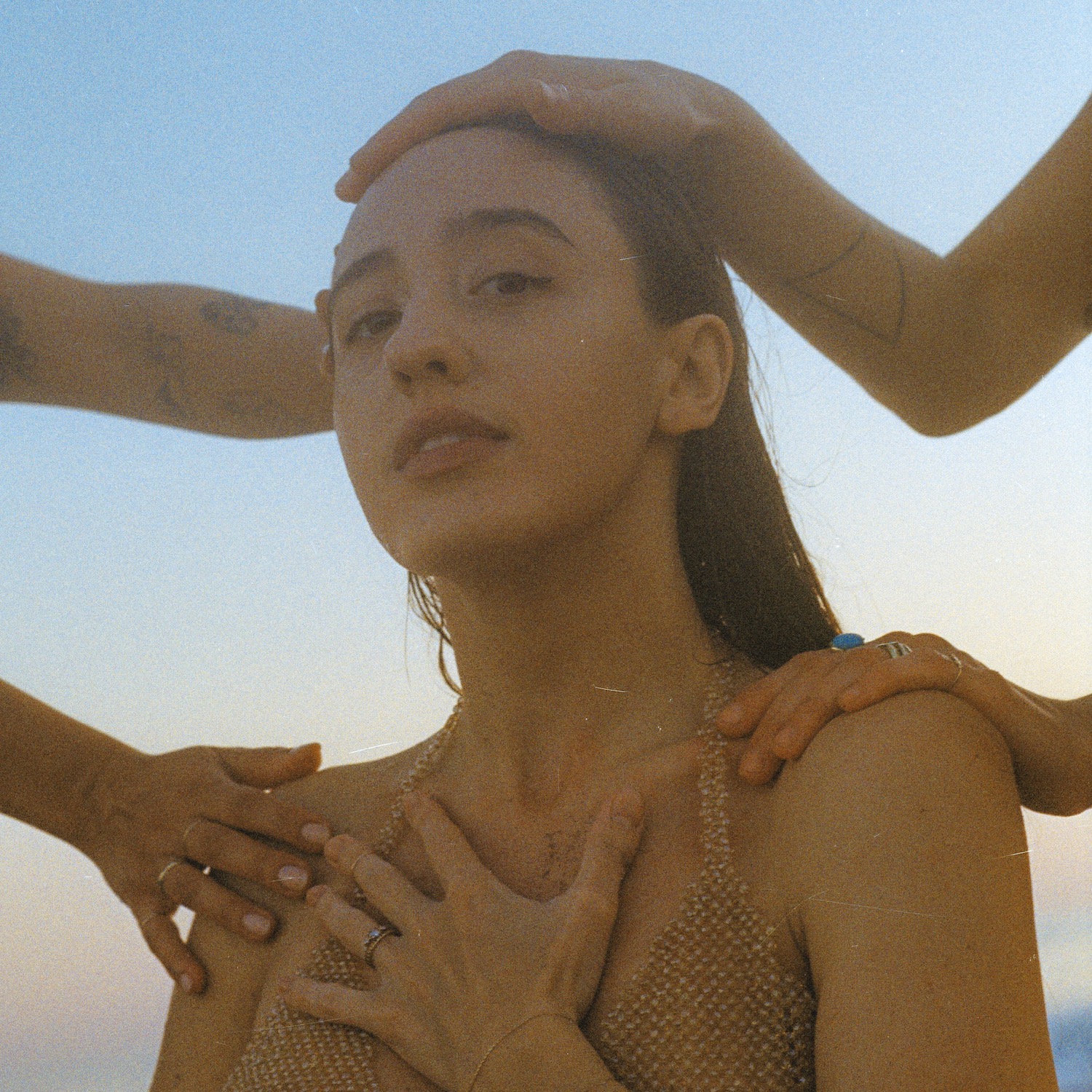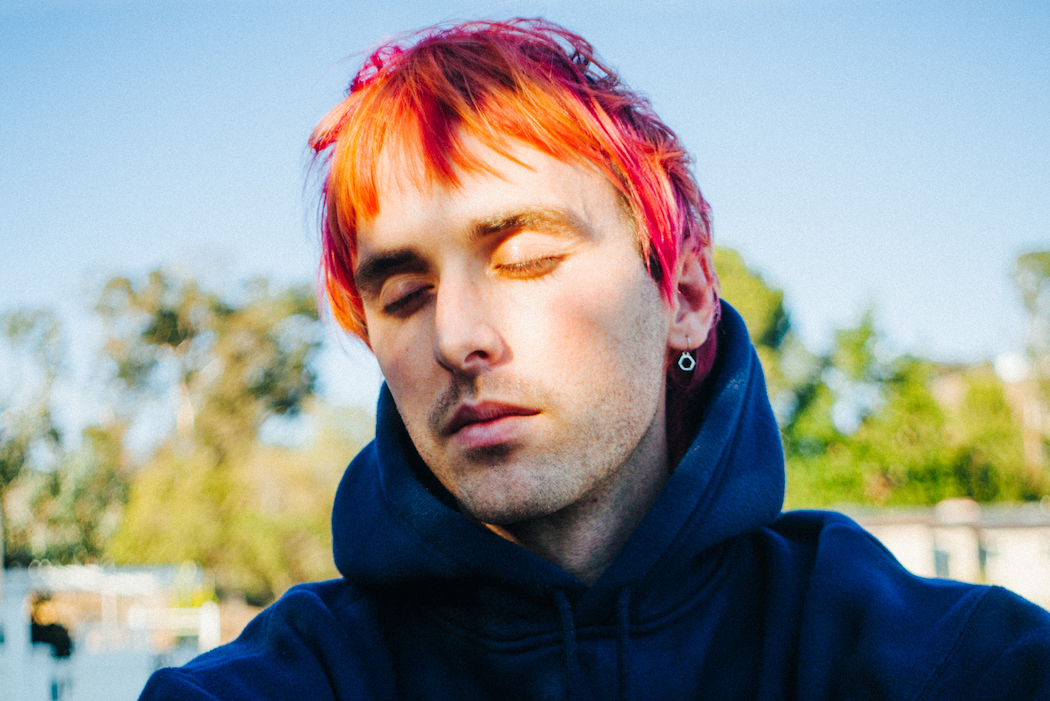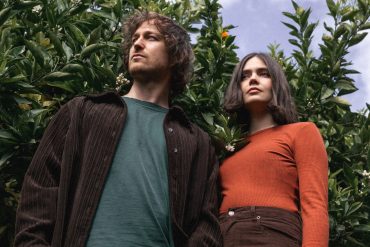Bombastic breakout star Emei imbues the full force of her songwriting prowess into her debut EP, ‘End of an Era’; a bold and brazen unleashing of all of the musician’s worldly frustrations.
Stream: ‘End of an Era’ – Emei
We’re all young adults trying to figure out our lives. Learning means making a bunch of mistakes, and that’s okay.
Sometimes it feels good to get a little angry. After all, taking some time off to simmer in rage never hurt anyone… right?
Viral alt-pop artist, Emei (AKA, Emily Li), would have to agree. Her debut EP, End of an Era, released Oct. 26, 2022, is a scrapbook of her inner frustrations, providing insightful snapshots of her growing pains, and perhaps most importantly, her acceptance of the beauty found within imperfection — all of which is wrapped up in a neat package of nearly 14 minutes of cascading walls of sound, bubbly pop hooks, and lyricism that oozes the musician’s natural charisma.
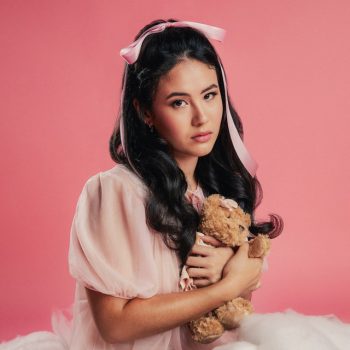
Emei’s music is the unapologetic voice of the people; steeped in fiery self-loathing, her discography expresses various feelings of ineptitude and inadequacy that so many of us experience but don’t — or refuse to — verbalize. Though, Emei is not the type to sonically dwell in the ‘woe is me’ mindset; she instead imbues plenty of witty nuance and dry sarcasm within these bold narratives of dissatisfaction. No matter how angry or miserable Emei feels, each of her tracks are catchy earworms that make sorting through even the toughest of issues a delightful experience.
Though, before she was penning these hyper-relatable anthems, she was tinkering around on a clunky, pink Dell computer. Hours would fly by during her childhood as she sat, perusing through YouTube on said laptop; memorizing the lyrics to hundreds of songs and belting her heart out to karaoke track after karaoke track.
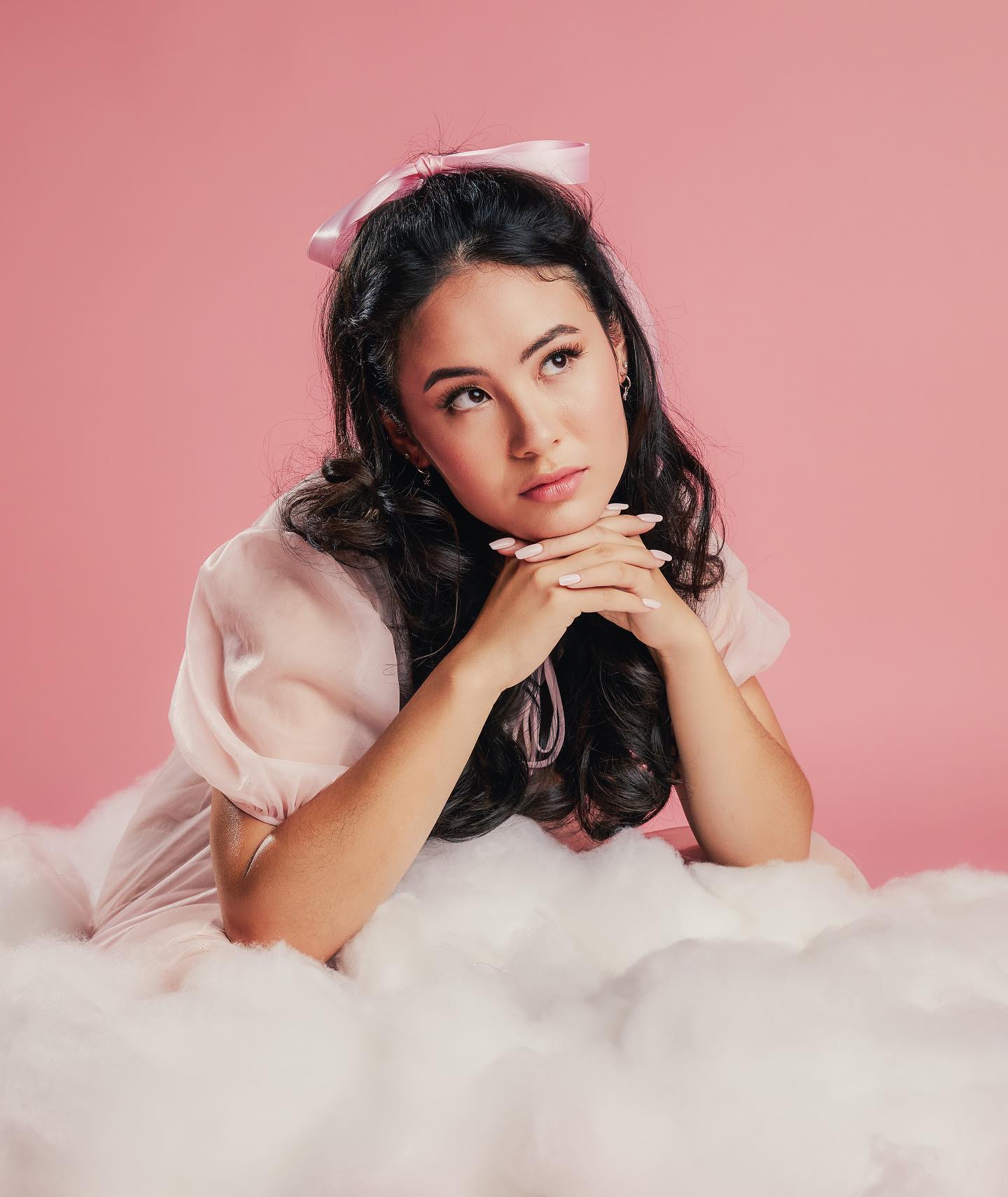
Evidently, this untapped star power could not be contained within Emei’s living room for long.
And while pursuing a career in music had always been on Emei’s bucket list, her original aim was to release music in Chinese for a Chinese-speaking audience, as she already had a solid foundation within the country’s music scene after placing third in Chinese Idol when she was 15.
She admits: “My dream has always been to do music in America, but I didn’t really let myself try, think, or even plan for that. Growing up I never really had someone who looked like me in the spot that I wanted to be in […]. Having that in the back of your head as a little kid makes you really not believe that the spotlight is something that is meant for you, or even if there’s space for you in that sphere.” Without having that crucial representation in the media that she was consuming while growing up, Emei was almost conditioned to feel as though her career could only succeed within China and Chinese culture.
The COVID-19 pandemic, however, put a slight wrench in her plans.
Being stuck in the states virtually prohibited Emei from making any moves across seas, so she decided to instead set her sights on the American music industry. Released in August of 2021, her first single, “Distracted,” a collaboration with LEXIM, gained major traction in the states, providing the musician with a gentle nudge — or, more accurately, an encouraging shove — toward seriously devoting her life to music.
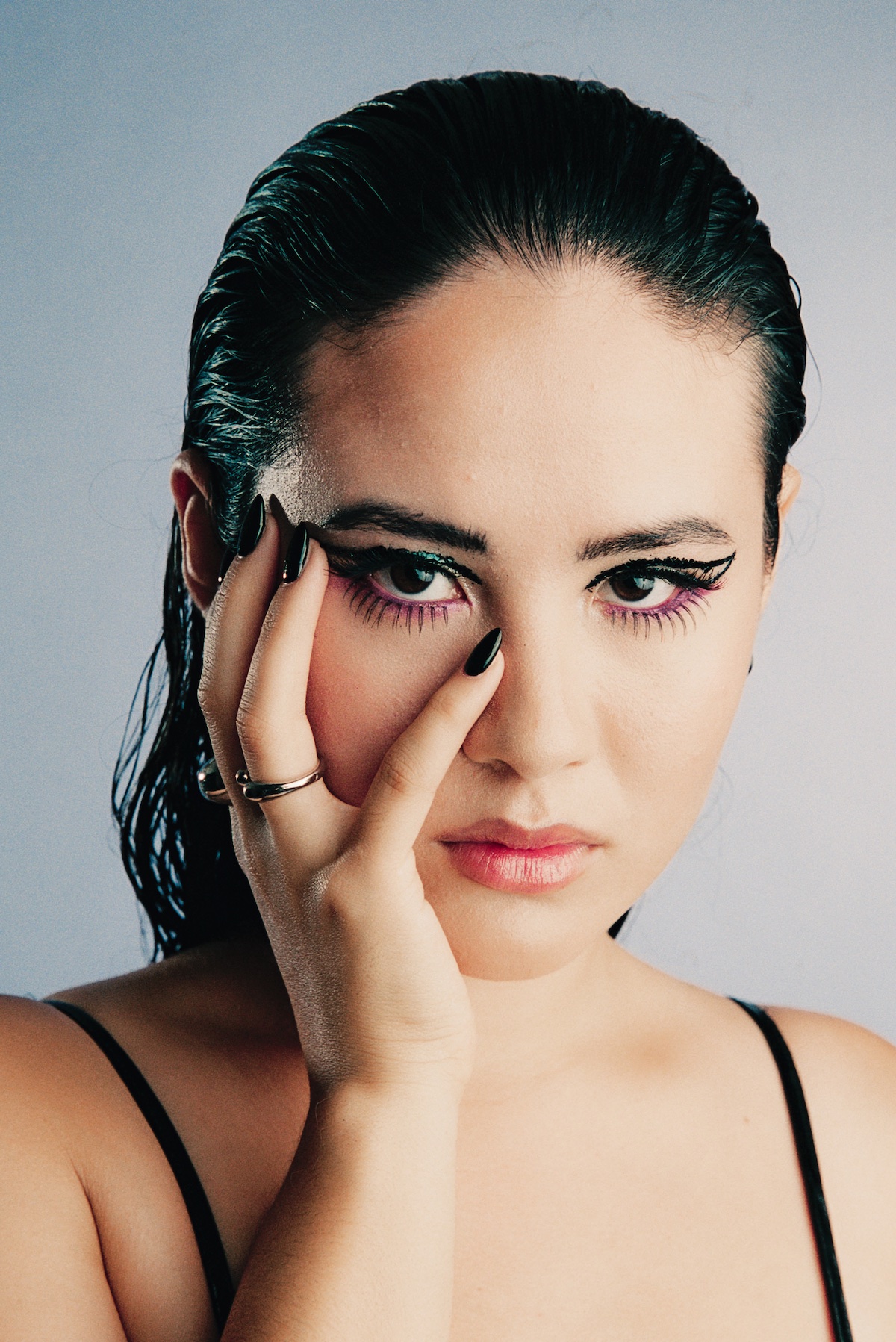
Representation is the biggest thing ever, and it’s cool to see that there is — slowly but surely — an increasing amount of Asian Americans in the music industry. Definitely not to the degree that I think it should be, but we’re working on it.
Two years later, we find ourselves graced with Emei’s debut EP, End of an Era.
The project “is just me learning things about myself and also allowing myself to make mistakes,” she shares. In six tracks, Emei takes time to revel in imperfection, acknowledging her struggles and growing from them all the while.
“The whole EP is about finishing college, becoming an adult — that transition of being a child to being an adult who has to be self-sufficient, independent and all this stuff,” she asserts. “A lot of it is growing pains; figuring out that I have to take a leap to make friends, and figuring out that everybody is trying to be a certain person on social media.”
Emei is her own worst critic — some tracks on the EP are altogether scathing, as she berates herself for not meeting the impossible standards that she herself had previously set. With a backbone of crashing instrumentals and Emei’s confident vocals, listeners become fully immersed in her self-inflicted rage. From the wickedly sarcastic “Late to the Party,” to the upbeat, yet subtly mournful “End of an Era,” Emei doesn’t miss once, taking listeners on a journey through her excruciatingly candid self-awareness.
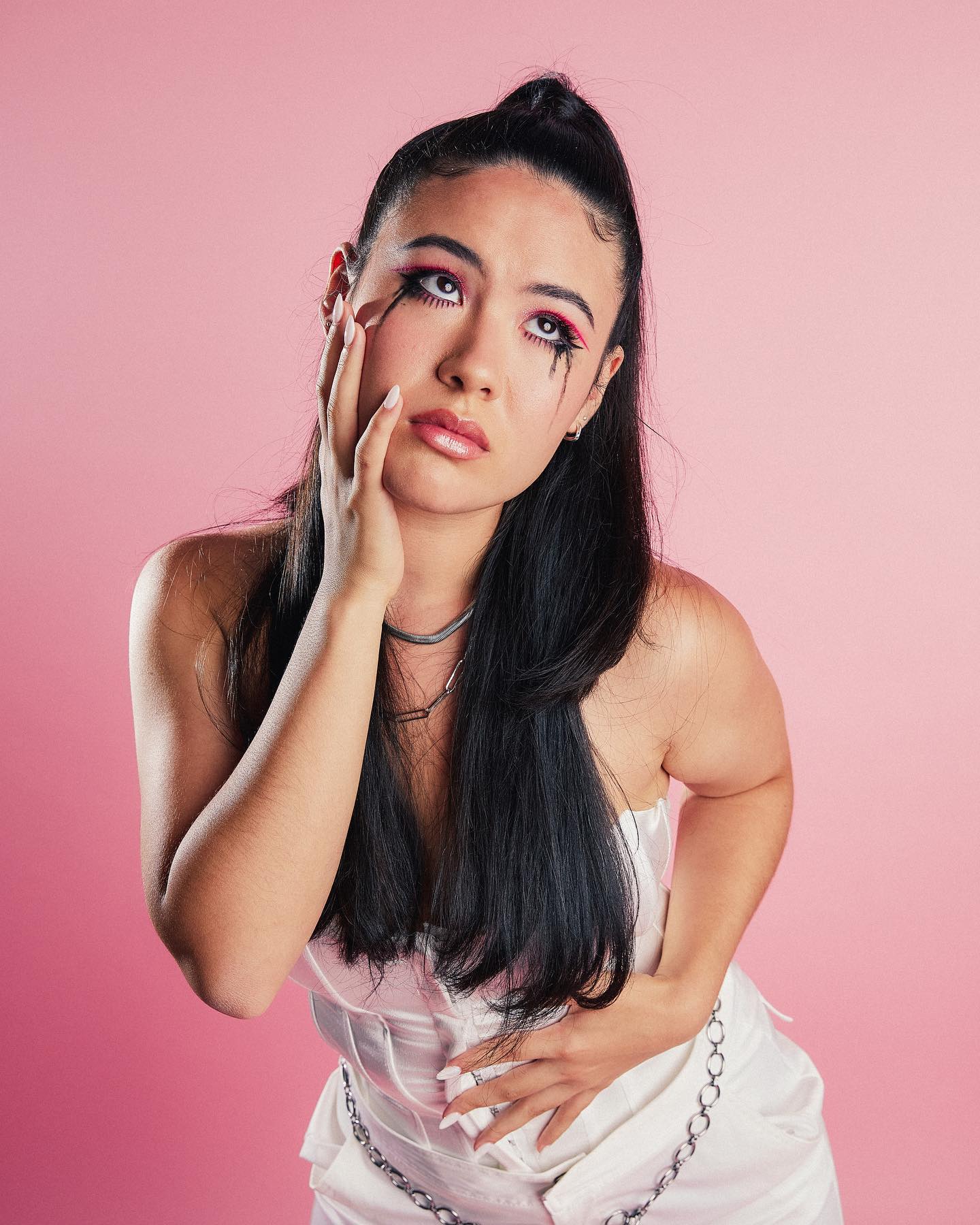
“No matter what you’re feeling, there tends to be somebody else who can also relate, which is just a magical thing about being human,” Emei adds. End of an Era invites listeners to embrace the feeling that society denotes as not being ‘pretty,’ or ‘appropriate’; to bask in the catharsis that comes with being unafraid to let the so-called ‘ugly’ emotions break through the clean façade that we all maintain.
And thus, as Emei exits this period of her life and moves on to the next, recognizing the complicated dichotomy between the sadness of leaving this time behind, and the hope that she feels at the dawn of a new part of her life. She perhaps sums it up best within the lyrics of the EP’s final track “End of an Era,” as she comes to the optimistic conclusion: “God, it’s sad — but we’ll be fine.”
Listen to Emei’s debut EP, End of an Era, via any streaming service, and continue reading below to get the full scoop on the life that has informed her music!
No matter what you’re feeling, there tends to be somebody else who can also relate, which is just a magical thing about being human.
— —
:: stream/purchase Emei here ::
Stream: ‘End of an Era’ – Emei
A CONVERSATION WITH EMEI

Atwood Magazine: Before we get into your new EP — congratulations by the way — I want to start off by asking about how you got your start as a musician. What drew you to the field? I know you competed in Chinese Idol, which is amazing, but what got you started and what kept you going?
Emei: My parents are Chinese immigrants, and so when I was very little I played piano and did violin for a little bit — I hated both of them. I started singing when I was around 9 years old, it was because I got my first laptop; a hot pink Dell laptop. During all of my free time, I would come home after school and look up lyric videos and play them and sing them out loud the entire time. That’s how I got started. My parents noticed that I loved to be singing all the time. I feel like I was a really loud kid, so that got me into it as well. I started taking singing lessons around that time, and started gigging around New Jersey and in New York when I was around 9 or 10 years old.
Wow, that's awesome. I love the specificity of the pink dell. You've been creating music for a little while, and then recently embarked on your solo career. With music, there's this pressure to create a good song that your audience will like, but also something that you’d like to play and hear over and over again. What do you do to keep this passion for creating music alive when the ultimate goal and key to success in the industry is creating something that other people will like?
Emei: That’s so interesting. I tend to think that the things that I genuinely love, people will also like, because if I believe in it, then there’s a chance for them to believe in it. If I don’t believe in it, there’s no way that someone else is going to believe in it. For me, step one is making something that I believe in, and something that I love the most. Step two is figuring out if someone else will like it after I decide that it’s something that I’m really proud of first.
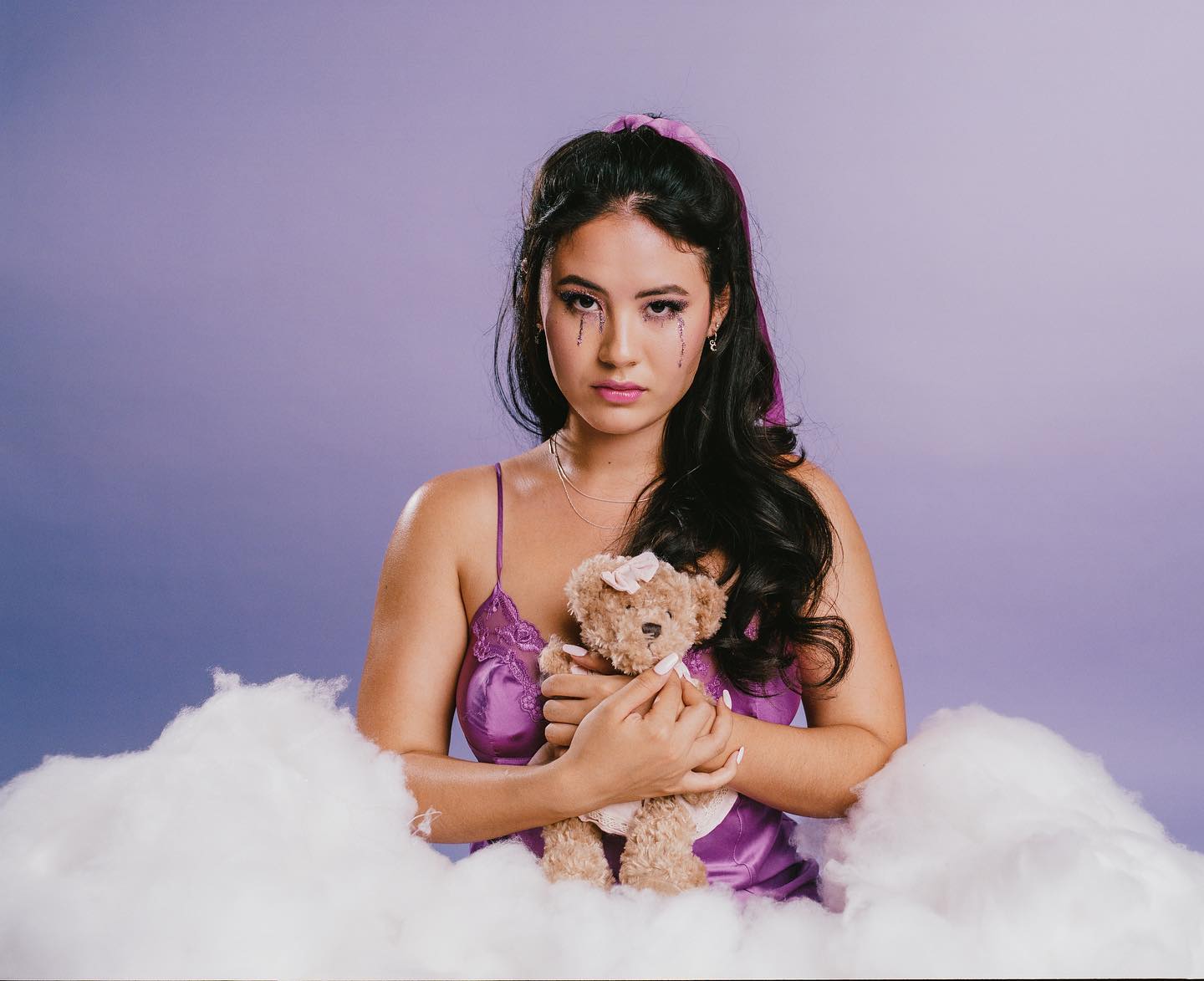
That's a really healthy way to look at it, because now especially with TikTok audios, a lot of artists like to create lyrics that people can grab on to and use in their own TikToks. It's really healthy that you aren't catering to an audience, you're catering to yourself first.
Emei: With TikTok, I love leaking stuff before I decide if I want to put it out. It’s fun to see what people think. If I’m choosing between three or four songs, I’ll leak them and see which ones people tend to gravitate toward. At the end of the day, even if a song is well received when I leak it, if it’s something that I don’t believe in or something that I don’t love, even if it goes viral, I probably won’t put it out. A lot of artists run into that problem where you’ll leak something, and everybody will be like: “Please, please can you put it out?” and then you don’t love it. There’s no really getting around that, it’s tricky. It’s an interesting time where we can be showing people things that aren’t done.
It's such an interesting sneak peek because artists in the past didn't have that specific ability. They had to already have a master on vinyl or cassette or something. You can just send out demos now and put them online. Going off of that, and the topic of social media; we live in an age of self promotion, and sometimes artists feel like constantly having to post can really affect their mental health. What are your thoughts on it? How do you navigate through having this social media presence?
Emei: It’s definitely tough, because it makes it so that artists have to be constantly promoting. Before TikTok and social media in general, artists’ activity went in waves. You disappeared off the face of the earth for a few months to work on music, and then when it was ready, you came back and you did promotional things for a few months where you’re on and you’re killing it. You’re touring, you’re doing all the interviews, all the press — everything. Now you have to have a song out every month and a half, and you have to be posting TikToks every single day of your life. It definitely gets to be exhausting. What helps me is that I try not to take it too seriously and also don’t really pay attention to the reaction. My goal is to post one to two times a day, not to have a viral video every two days. By focusing on what I can control, it makes it a lot easier. When I first started, there was a pressure to be like: “Oh, all of my videos are flopping, what do I do?” You can’t really control that; all you can control is doing your best to put whatever you can out and not putting too much energy and emotion into how it’s received. I’m also being a hypocrite; you can tell yourself that, but at the end of the day, sometimes it still affects you.
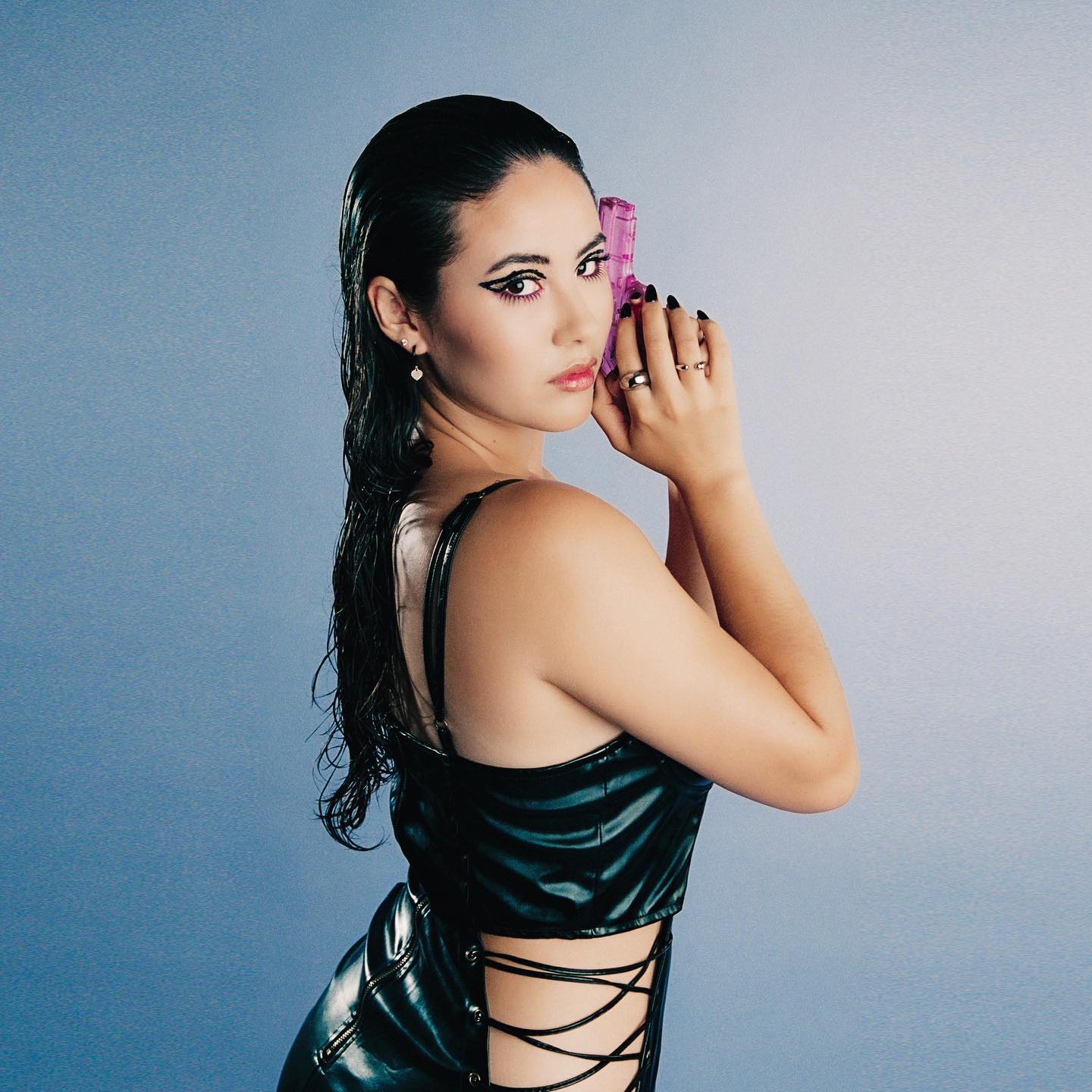
It's all about striking a balance. It won't always feel perfect, but it's good that you are doing it in a way that you feel is healthy for you, because it can be a lot for sure. If it's alright with you, let's switch directions and talk about the EP. Congratulations on its release! How are you feeling about End of an Era being out into the world?
Emei: I am feeling good. Music is always weird, the day of a release in particular. You’re happy that it’s done, and you’re happy that other people can listen to it, but you’ve also listened to it like 1,000 times now. I know every single word, I know every little detail — I’ve listened to it so many times.
I’m excited that everybody else can enjoy it now, but I’m very much planning for the next thing. We just sent the next song out to mix! It’s a constant movement, but I’m happy that specific stage of my life was documented in a way that I’m really proud of. All the songs are super intentional. I went through a bunch of iterations of which songs to go on the EP, which songs not to have on it, what sound I wanted to go for, and what I really wanted to say through it all. I’m in general super happy with that product.
You talk about how the songs are really specific to a certain era of your life. You wrote them a while ago, and recorded them a long time ago. Do the themes and lyrics still feel relevant to your current life? Do the songs hold up to who you are now?
Emei: The interesting thing about songwriting is that I can write a song in a certain stage of my life, and then look back on it and know exactly what I was writing about then. It can mean something completely different to me now.
It’s so cool that I can write something about something super specific — for instance, “Ferris Bueller” is about my linguistics class that I hated, which is so specific. Other people can listen to it and be like: “Oh my God, I relate to this because I wish I could just drop all my obligations and do whatever I want” — that has nothing to do with linguistics, or the class that I was in. It’s cool that I can do that, and music definitely does that for me as well.
With “Late to the Party,” which was written in June of last year — that was something very different to me, because I was a junior in college. COVID was kind of ending, we were going back to normal. I was like: “Oh my God, I feel like I lost two years of my life and I don’t know what I’m going to do next. I’m feeling super impatient. I’m still in college, and I just want to be doing music” — all this stuff. Now, obviously, I graduated college, I’m in LA doing this full time. I feel the same in the sense that I just turned 23 and I’m still like: Oh my God, I have my first EP out, and I really want my next EP out tomorrow.” That’s not gonna happen. There’s elements of impatience in “Late to the Party” that I will always relate to. Writing songs is my favorite thing ever because of that — you can capture a moment and you can relate to it in different moments of your life.
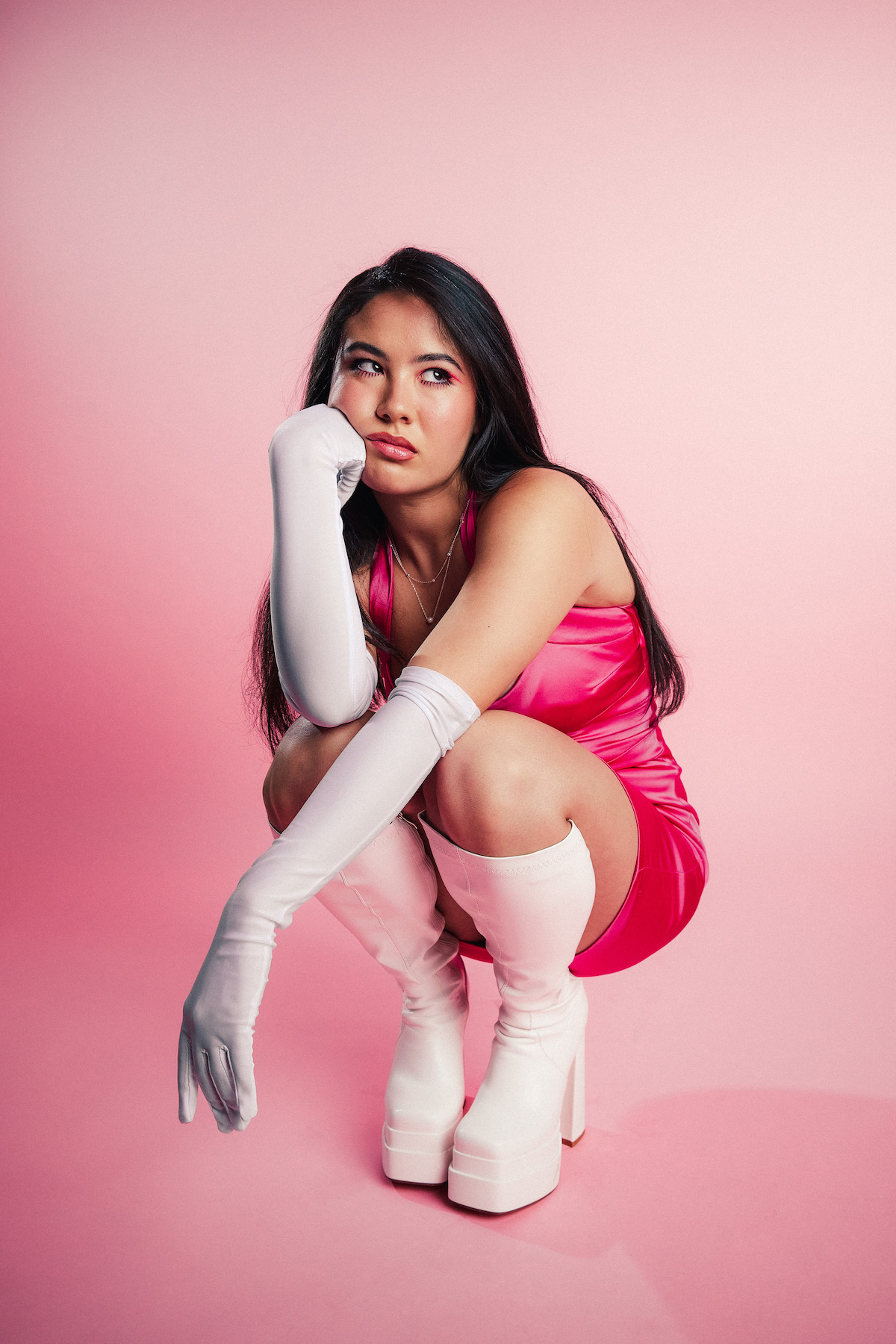
The interesting thing about songwriting is that I can write a song in a certain stage of my life, and then look back on it and know exactly what I was writing about then. It can mean something completely different to me now.
It's so timeless. You can just go back to certain points in your life and feel the way that you felt, and capture those moments. That's really beautiful, especially with your songwriting because it's so visceral with the emotions that you're feeling. All of your songs on this EP have this super loud, bombastic and bold sound. How did you decide on this texture for your EP?
Emei: With EPs, at least for me, what I do is write a bunch of songs, pick sounds that I’m really feeling or like I’m very interested in during the moment. When I write a song, I’m very much like: “Oh, I like this sound,” and “I don’t really like this sound.” I’m not really thinking about how it all fits in until I’m planning out the EP.
When I’m planning out the EP, I look at all the songs that I’ve already written and then match them together. You would think that I wrote all the songs for a certain place on the EP, and they all tend to sound good together because I planned it in advance, but it was very much the opposite. I wrote a bunch of things that I loved and was obsessed with, and they all happen to fit together because I was writing about the same time period of my life. I was listening to the same music at the time, and was drawing from the same people for inspiration. Those sounds were something that I was gravitating toward, and it was super fun for me to perform as well. It just felt right for what I was trying to say.
I bet your live performances are so bold and fun, because the energy of the songs is already just so powerful. Performing them live must be a whole other experience.
Emei: It’s always so fun. For me, performing is probably my favorite part of all this. It’s hard to choose, because the more I write, the more happy I get writing. I started my music career and was gigging when I was 9 and did [Chinese] Idol, but all of that was really revolving around being a singer and being a performer. Writing is relatively new to me, and performing on stage is where I feel the most comfortable and at home. When I’m writing songs, I’m very much thinking about how they would reflect onstage, and which parts people can sing along with me for, and which parts I can do audience interaction for.
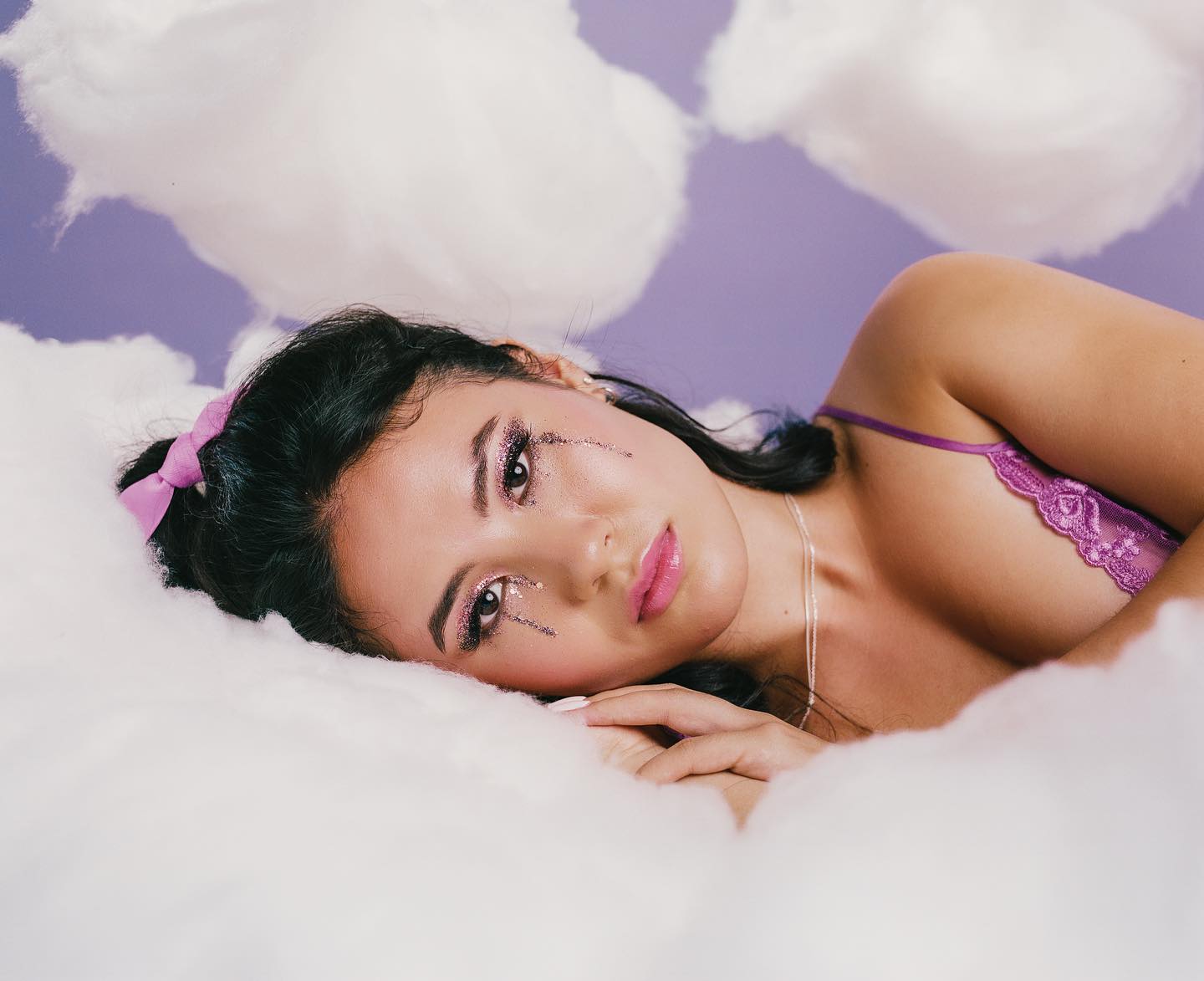
You were discussing the track “Late to the Party,” and I noticed in that track, you chat about feeling like you're extremely behind everyone else, but you're also in conflict with those feelings as you question: ''What's all the rush for?'' How do you deal with those feelings of being behind; how do you reconcile those feelings and accept that this is where you are?
Emei: With “Late to the Party,” there’s an element of sarcasm in it. Irony in the sense of feeling behind, because I know that I’ve already done a lot and still feel behind because I want to be these crazy, ridiculous kids who are on Forbes and on Disney; all that stuff. It’s this ridiculous expectation of where people should be versus where we are.
I tried to fight that feeling by taking moments to celebrate — celebrating the little things: a song comes out, an EP comes out, [I celebrate by] popping champagne with my friends. It’s really important to take those moments and celebrate them. It’s the same thing with streams; the first time I hit 100,000 streams on a song was such a big deal. As you keep going, things just matter a little less. It’s really important to take a step back and celebrate those things. I try to, once in a while, look back and be like: “Oh, I’m really proud of myself.” We live in a society where we’re always looking forward and always looking for the next thing. You hit your goal and then you’re like: “Alright, moving on to the next goal,” right? It’s really important to be able to look back once in a while to be like: “Look at how much I’ve done in a year! Look at where I wanted to be and where I am now!”
It's so nice to just be able to look back when you're feeling stressed and think: “Oh, maybe I have done more than I think I have.”
Emei: It’s important to also have friends around you who remind you of that. That’s really important, having family and friends who can be like: “Hey, I’m really proud of you. Look at how much you’ve done. You’ve been really hard on yourself, but you’ve done some great things.”
Friendship is definitely something that really helps break the anxiety down.
Emei: Right! Just take a step back and be like: “Okay, well, me hitting my goals isn’t everything in life.”
Atwood: Definitely! I wanted to ask about the song ''Regrets.'' You've mentioned that you moved to LA recently, and there's a lyric in the song that says, ''If I moved to LA sooner / Or had longer blonder hair / Maybe I wouldn't be scared.'' The lyric with ''longer blonder hair'' causes me to wonder what your experience as a Chinese woman in the music industry has been like thus far. How have you navigated through an industry that doesn't have too many female-identifying Chinese stars in it?
Emei: As you mentioned, I did [Chinese] Idol when I was 15 in China. After that year, I was very much planning on going back to China for entertainment. Every single summer and winter break, I was always going back, talking to agencies and labels there. Then COVID happened, which is why I ended up releasing music in America and taking it more seriously in America.
My dream has always been to do music in America, but I didn’t really let myself try, think, or even plan for that. Growing up I never really had someone who looked like me in the spot that I wanted to be in. I looked up to Selena Gomez and Taylor Swift, but they obviously don’t look like me. Having that in the back of your head as a little kid makes you really not believe that the spotlight is something that is meant for you, or even if there’s space for you in that sphere.
I was very much planning on doing all this in China, because there was clearly space for me there. With COVID, obviously it was bad, but it was also a little bit of a blessing in the sense that it pushed me to try releasing in America. Where I’ve gotten so far has definitely surprised me, and how much support I’ve gotten from the industry, but also distribution-wise on Spotify. Everybody has been really forthcoming and very supportive. I felt really lucky.
Representation is the biggest thing ever, and it’s cool to see that there is — slowly but surely — an increasing amount of Asian Americans in the music industry. Definitely not to the degree that I think it should be, but we’re working on it. There have definitely been moments though. The first show that I went to in LA last December was an industry showcase. I knew people there, and my friend brought her friend who was also Asian. There were no other Asians in the entire room, and I was with them, and then someone was like: “Oh, are you guys siblings?” And I was like: “What…” That was definitely discouraging, because that was one of my first trips out to LA. For me, it’s about always looking forward, trying your best to change things.
My dream has always been to do music in America, but I didn’t really let myself try, think, or even plan for that.
The sibling thing is something I've gotten as well — it is such a unique experience, being an Asian in America, but we can all learn together. I'm glad that the industry is opening up, because it's definitely something that both of us would have wanted as children, to have Asian pop stars, Asian rock stars — people like that to look up to in the media. It's finally becoming a little more accessible, but as you said, there's always more to go. I wanted to ask about the song “Trust Issues.” It's a classic recap of the jealousy and anxiety that can come with a relationship. What do you do to enjoy a relationship in the moment even if you have some worries or anxiety surrounding it?
Emei: With the whole EP, it’s a lot of me wanting something, or being like: “Oh, this isn’t good enough.” A lot of wishing life was a different way.
The remedy to all of that is really just trying to enjoy yourself in the moment. Even with friendships. I just moved to LA in February; it has been around eight months. Going to a completely new city and not really knowing anybody here, there’s definitely moments where I am meeting a friend I’m like: “Does he like me?” and it’s the same thing with managers and people in the music industry. A lot of the time I don’t know if I can let my guard down and be completely myself, because I don’t know who you are. I don’t know if I can trust that yet. There’s an element of having to put [anxiety] down before you feel comfortable putting it down. You have to jump to have relationships work. You have to be the first one to be like: “Hey, do you want to hang out tonight?” or “Hey, do you want to work together?” That’s something I’m adjusting to right now. I have to park those problems at the door, and let people in.
Relationships are always a hard thing to navigate through at the beginning. We can all learn something from your music. Some artists write music that is a direct call out of their behaviors, it's a cool manifestation of realizing: “Oh, maybe I am acting this way. Maybe I can leave this baggage at the door and start afresh.” The whole EP project is called End of an Era, and the last track is also called “End of an Era.” As you close the era of working on this EP, what have you learned? What lessons are you taking from this era?
Emei: There’s so many things. It’s so funny. The whole EP is about finishing college, becoming an adult — that transition of being a child to being an adult who has to be self-sufficient, independent and all this stuff. A lot of it is growing pains; figuring out that I have to take a leap to make friends, and figuring out that everybody is trying to be a certain person on social media. For instance, with “That Girl,” you can try [to be that ‘perfect’ person], but if it’s not really who you are, then it’s okay.
The whole EP is just me learning things about myself and also allowing myself to make mistakes. That’s a big thing with this stage of my life. I’ll spend a long time not figuring out my apartment stuff, I’ll mess things up and be really frustrated and hard on myself. This is what everybody’s going through. We’re all young adults trying to figure out our lives. Learning means making a bunch of mistakes, and that’s okay. The entire EP is just me being like: “Wow, look at all these struggles — but they’re okay.”
That's such a good tidbit to tell yourself — things might be bad now, but you can look back on this EP and be like: “Oh, I made it through that! I'm fine now, and I still have a lot more to learn.” I love that.
Emei: Writing is interesting. It feels very much like therapy. You go into a room, and sometimes it’s with strangers, people you’ve never even worked with before or talked to before.You have to literally unpack whatever is bothering you that day or that week. Oftentimes, we’ll be writing a song, and I’ll realize something about myself, or something about the situation that I’m in. There’s so much to learn in the process of me unpacking those emotions. It’s very much like therapy.
Songwriting as a form of therapy is so beautiful, and it can affect so many other people.
Emei: It’s also cool that it affects other people. There’s an element when I first started writing, I was just writing stuff about myself — writing stuff to get through whatever I was going through. When other people started relating to that, it was really cool. No matter what you’re feeling, there tends to be somebody else who can also relate, which is just a magical thing about being human.

Going off of that, what impact do you want this EP to have on listeners?
Emei: It’s as simple as someone listening to it and being like: “Wow, that is exactly how I feel.” I don’t feel like I’m trying to go for some grand thing of changing someone’s life. It’s very much just if someone is going through something similar and they can listen to a song and be like: “Wow, this is me. This is how I feel, and this song is wording it perfectly. I can scream it out loud and get some frustration and emotion out.” My job is done if that happens.
Yeah, definitely! It's the perfect soundtrack for getting emotion out — whether it's anger, sadness, frustration, etc. I like to end my interviews on a happy note, so I want to know: what's bringing you joy right now? It can be anything in the world.
Emei: Oh my God. What is bringing me joy right now? This is my first fall in LA, and I obviously miss the leaves changing in the northeast, but it’s so nice to walk out in a sports bra and have the sun hitting my face. So much happier. That is definitely bringing me some good, good joy recently.
Representation is the biggest thing ever, and it’s cool to see that there is — slowly but surely — an increasing amount of Asian Americans in the music industry. Definitely not to the degree that I think it should be, but we’re working on it.
— —
:: stream/purchase Emei here ::
Stream: ‘End of an Era’ – Emei
— — — —

Connect to Emei on
TikTok, Facebook, Twitter, Instagram
Discover new music on Atwood Magazine
? © Ryan Clemens
:: Stream Emei ::

